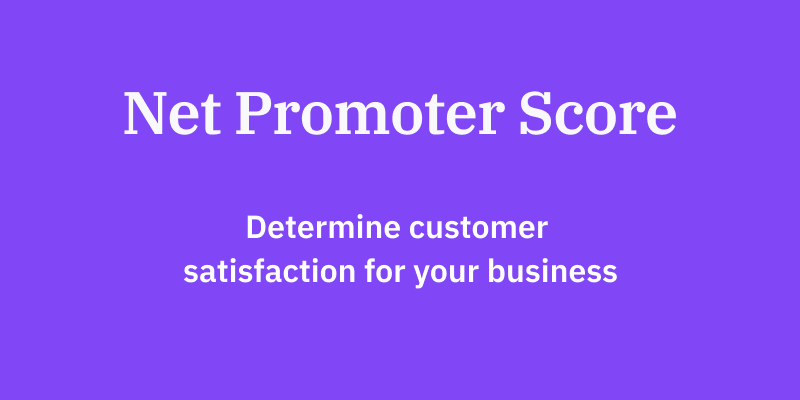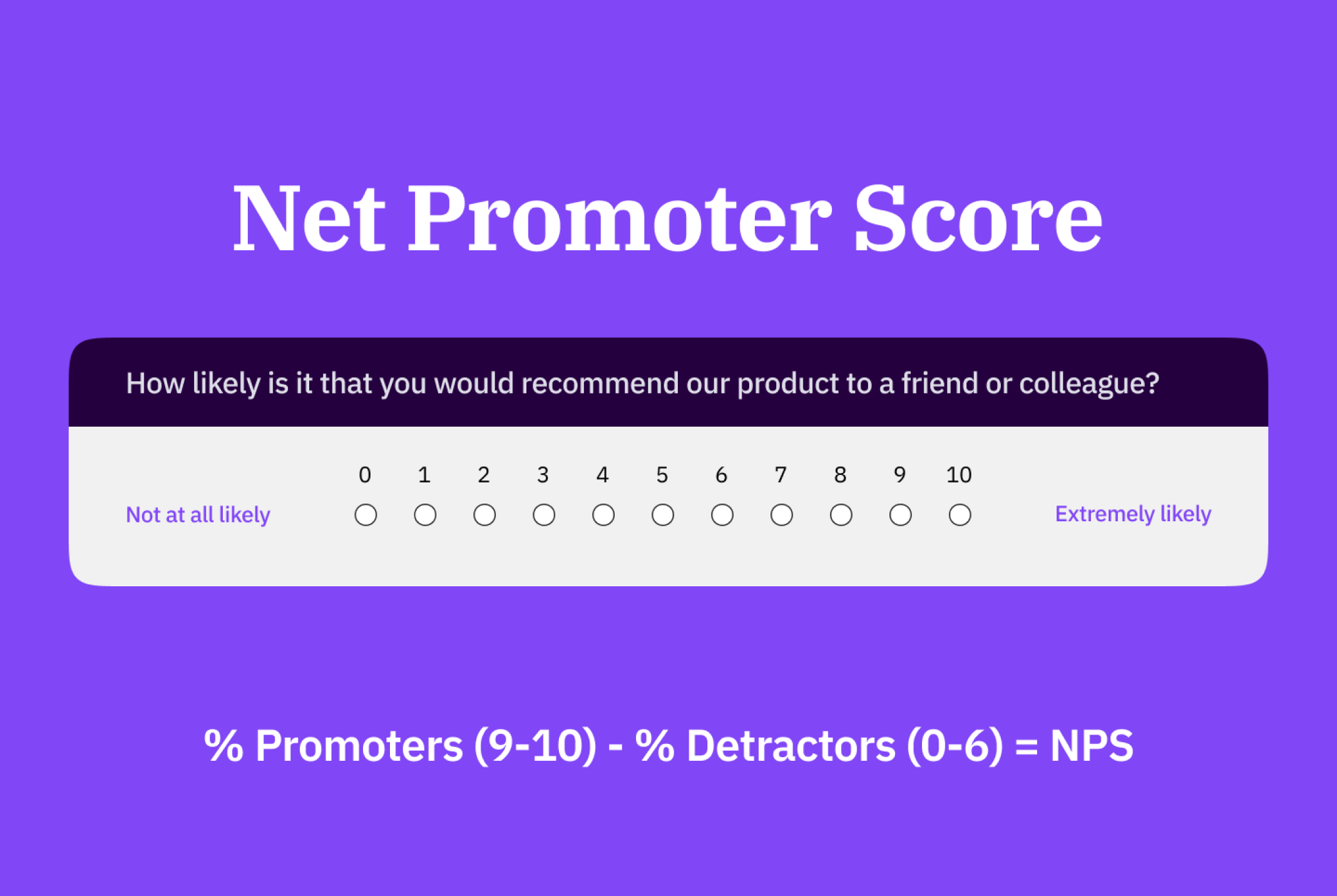Table content

What is the Net Promoter Score (NPS)?
The Net Promoter Score consists of a single powerful question that simply asks “How likely is it that you would recommend company/product/service XYZ to a friend or a colleague?”. It offers an array of answer options ranging from values 0 (“Not at all likely”) to 10 (“Extremely likely”).

It was developed by Fred Reichheld and introduced in 2003.*
How to calculate the Net Promoter Score
- Those that chose answer options 0 to 6 are categorized as detractors, i.e., people who are not particularly satisfied with your products or services.
- Respondents who chose 7 or 8 are labeled passives who are neutrally motivated users and later ignored when calculating the Net Promoter Score.
- Lastly, those who chose 9 or 10 are your promoters, i.e., your loyal and satisfied customers who would gladly recommend your company and its products and services to other people.
The actual NPS calculation is done in two steps. First, you need to determine the percentage of promoters and detractors:
- Number of promoters / Number of total respondents * 100
- Number of detractors / Number of total respondents * 100
Example: You have received a total of 100 responses on your survey. 30 respondents (detractors) chose 0 to 6, 30 respondents (passives) chose 7 and 8 and 40 respondents (promoters) chose 9 and 10.
- 40 promoters / 100 total respondents * 100 = 40% promoters
- 30 detractors / 100 total respondents * 100 = 30% detractors
The second calculation step is the respective NPS equation:
- % promoters - % detractors = Net Promoter Score
Let’s take a look at our previous example and calculate the Net Promoter Score.
Example: We had 40% promoters and 30% detractors.
- 40% promoters – 30% detractors = 10(%) Net Promoter Score
Note: There is broad uncertainty about whether the Net Promoter Score is displayed as a percentage or not. The fact is, there is no specific evidence so far to determine which is better. However, there are publications by the inventor of the NPS himself, Fred Reichheld, who specifies the NPS in percent, for example, see here which is why I decided to stick to percent.
What is Considered a Good Net Promoter Score?
As mentioned before, the NPS can range from -100 to +100. If you have an equal number of promoters and detractors, you will always end up with an NPS of exactly 0. Therefore, it makes sense to treat 0 as the mean NPS, making it an average score, neither very good nor bad. Anything below 0 should sound an alarm since it indicates customer satisfaction levels are tending towards negative values, and an organization’s products, services, or processes require considerable improvement to avoid substantial customer churn.
Obviously, strategy and efforts should be aimed at achieving the highest possible positive NPS score. According to global NPS standards, a score from 0 to 49 is considered “good”, a score from 50 to 69 is considered “excellent”, while a score of 70 and higher is considered “world-class”.
For benchmarking reasons, pages such as Customergauge.com offer great insights into well-known brands’ NPS results. For example, Tesla Motors currently has an NPS of 97, while Apple has an NPS of 89, and Samsung, however, only manages an NPS of 70. Interestingly, the Apple iPhone has an NPS of only 55 and the Samsung Galaxy only 45, hence, making the overall brands more satisfactory from a consumer perspective than the companies' products.
Tip: If you are able to retrieve information on competitors’ or industries’ Net Promoter Scores, this may give you a good starting point to work towards gaining a competitive edge.
Advantages and Disadvantages of the Net Promoter Score
- Setup and processing are easy and fast due to user-friendliness.
- NPS question is intuitive for most respondents.
- The shortness of the survey reduces survey fatigue and results in a better response rate.
- Studies by Satmetrix and Bain & Company have shown that NPS and revenue growth are correlated.
- There can be good benchmarking possibilities.
- Customer classification can be undertaken easily.
There are also disadvantages to the Net Promoter Score:
- It is criticized as being too general and unspecific, as it doesn’t reflect the reasons for the low satisfaction of the detractors.
- It’s a snapshot of the general satisfaction level but lacks natural motivation and a plan for what to do with the attained data.
- It fails to predict future loyalty trends.
Tip: if you feel you are not getting enough information out of your NPS question data, simply extend your survey by questions such as ”Would you elaborate on why you chose {0,1,2,3,4,5,6,7,8,9,10}” and ”Which changes would have to be implemented regarding company/product/service XYZ in order for your recommendation to increase by just one point?”, each with an open text box.
These additional questions extend your NPS status quo by asking customers specifically for improvement areas and enabling concrete action to spur growth.
*Net Promoter Score is a trademark of Satmetrix Systems, Inc., Bain & Company, and Fred Reichheld




